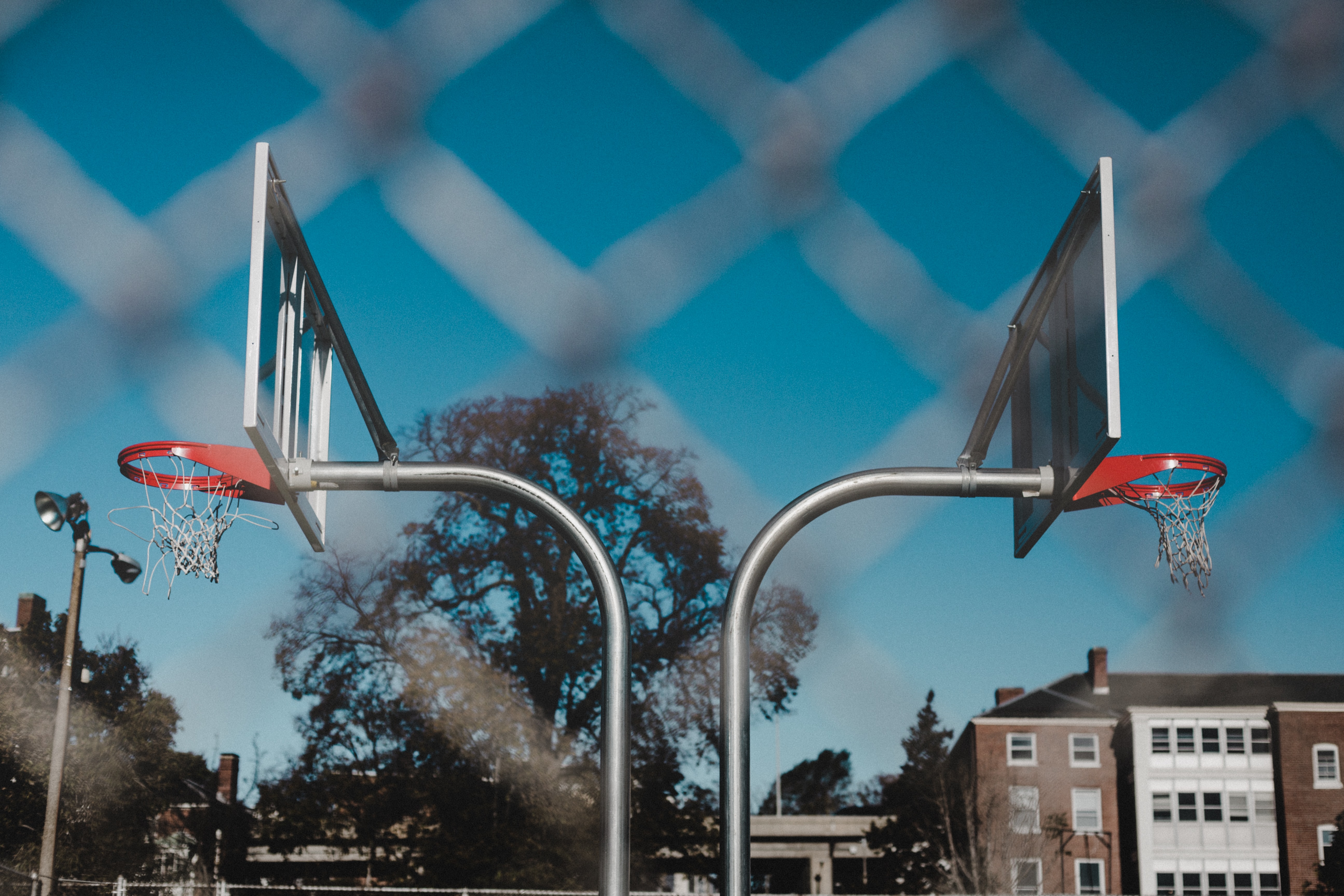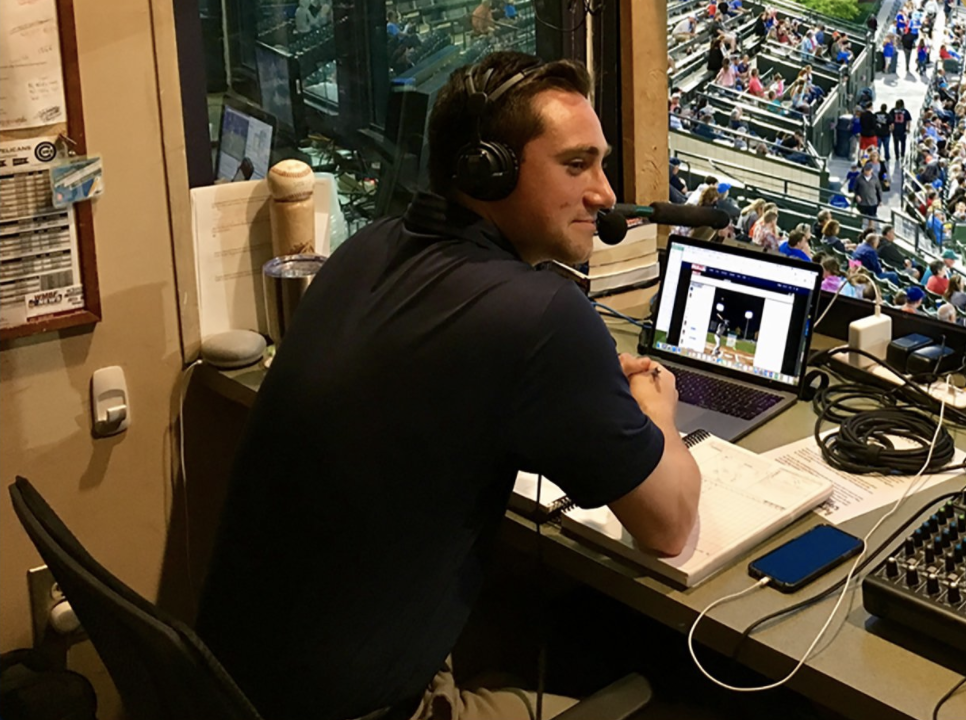Lyndsey D’arcangelo has done it all. Over her 18 year career, D’archangelo has produced award-winning fiction, reported on a wide array of LGBTQ+ issues, and is an established sports writer at The Athletic, writing for The Athletic Buffalo and The Athletic WNBA.
She’s also lived the realities of being a woman in the male-dominated field of sports—and industry where they face harassment, lack of opportunities and an inflexible glass ceiling that few have broken. While progress has been made, AP reported that in 2018, 90 percent of sports editors and 88.5 percent of sports reporters were men.
Like many women in the field, D’archangelo has been outspoken about the lack of female voices in the industry. On Twitter, D’arcangelo has called out double standards and points out the extra hoops female sports reporters must jump through to get to where they are. In her work, D’arcangelo takes her own experiences and details how early moments in her life were a chilling look into her future as a sports journalist.
Game Plan caught up with D’arcangelo to learn more about the hurdles that female sports writers encounter on their way into the sports world and how her gender has impacted her experiences and what she hopes to see in the future of a changing media landscape.
*The following has been edited for length and content*
How did you get into sports writing? Can you talk about some early experiences you had in the field?
I started out as a freelance writer. I got primarily into sports writing about five years ago and I wrote for a variety of different national and local publications. I live in Buffalo, New York, so while I would write on a lot of different topics, I would do features on different athletes mostly Buffalo based—like the Bills.
I started branching out into more national publications and started writing for places like ESPN and ESPNW. Eventually, I was offered to write for the Athletic Buffalo and I also write for The Athletic WNBA. So I’ve been primarily writing for the Athletic for two years now, and also I’m working on a book about the National Women’s Football League from the 1970s with a co-writer.
You also publish content outside of the sports world. What kind of content do you write?
I did for a long time before I got primarily focused on sportswriting. I wrote a lot for LGBTQ publications. There’s a national lesbian magazine called “Curve” that I wrote for for a long time. But everything like physical magazines and publications are on the downward spiral. So most of my work is online now.
So it seems like it’s not a great time for someone wanting to get into print journalism?
No, unfortunately it’s not, but there is also a lot more autonomy for writers these days to do their own thing. You see so many people who have gotten laid off or let go from different publications that are now doing newsletters and things like that.
I started one back at the beginning of the WNBA season and I do a Q&A series. It’s a fun 10 questions usually with WNBA players past and present and I did about 10 of them throughout the season. It’s a lot of fun and I get to control what I do, when I want to do it, and who I want to talk to.
Another thing that works in young people’s favor is that everything is just so accessible and online these days. When I first got into writing, you had to physically email publications to get noticed. You did not have such an online presence to get your work out there and to showcase yourself.
I see you’re very vocal about women in sports media. Can you talk about your own personal experiences in a sports media world dominated by men?
In Buffalo itself, [sports media] is very male-dominated. There’s very few women on the radio here. There’s no women on the radio here, I should say. The sports department at the Buffalo News was all men for a very long time. I think they have one woman on staff now. But that is not unique to Buffalo. It’s everywhere.

For me, it was always trying to just make the point that women are just as knowledgeable in sports as men and it shouldn’t be a gendered thing. There is support, but they still have this broad perception where women have to prove themselves in order to be seen as knowledgeable and professional in sports media. It is annoying and so that’s why I speak about it a lot especially if I see something that irks me in a certain way. It needs to be said.
The most impactful incident occurred when I was younger. I was playing soccer on an all-boys team with my brother and I was just as good, if not better than some of the other boys on the team. After our last indoor game of the season, the coach pulled me aside and told me I could no longer play on the team. His thinking was that the play was getting tougher, and as a girl, it would be safer for me to not play with the same team I had been on. It crushed me. It’s the first time I realized that me being a girl had an impact on my experience with sports. Eventually, I wrote about it in an article.
One tweet of yours in particular was powerful where you said, “There is so much pressure on women in sports media to be 100 percent perfect all of the time.” Can you talk more about that specific tweet? Do you face backlash for speaking out?
This actually came out of my interview with Doris Burke a few years ago. She talked about the pressure she felt being the first woman out of the gate to call NBA games and how she felt like she couldn’t mess up or make a mistake—not even one—because there was so much at stake in paving the path and keeping the door open for other women to follow in her footsteps. If she made just one slip up, that door might close forever. Women are under much more scrutiny to get it right—stats, player names, team info, game info, etc. When we make a mistake, it’s amplified a 1000 times more than if a guy had made the same mistake, because it gives fuel to the fire of misconception that women don’t know anything about sports and are unqualified to talk about them.
Do you think that there will ever be a time when women really don’t have to prove themselves? Or is that really long down the road from now?
I hope so and I think it’s changing. I think a lot of people in the business itself are already there. I don’t have any qualms about it, but it’s more fan based. It’s more these guys who like to “Monday Morning Quarterback” from their couch who have issues with it. As far as women’s sports like the WNBA and the National Women’s Soccer League, I tweeted something out [a few] days ago about them being left out of the narrative and not being referred to as professional leagues. In that regard, we still have a long way to go.
What do you think the world of sports could do to be more inclusive?
I think a lot of it is on the media. Media emcees who have extensive reach should mention the WNBA when they are doing these broad, general tweets. They should mention women’s sports in the same breath as these men’s leagues.
I think we are seeing it a lot from the NBA as far as the players doing their part in talking up women athletes. I love seeing that because that’s how change starts to happen. Fans see Lebron James talking about how great Diana Taurasi is—that’s impactful. Things like NBA players who would sport the orange hoodie with the WNBA logo on it, which then ended up being the best selling merchandise for the WNBA this season. That kind of stuff helps and I think you need more of it.
What advice do you have for female sports journalists just starting out? How should they navigate the industry?
Networking is huge and networking with women or male sports reporters is key. Don’t be afraid to speak out and speak your opinion and use your voice. That’s so important. Especially where we are right now. Don’t feel like you’re erased from any type of narrative. Your voice matters. Do your research, be prepared. That’s also key because when you use your voice, you want people to know what you’re talking about and why they should listen.


